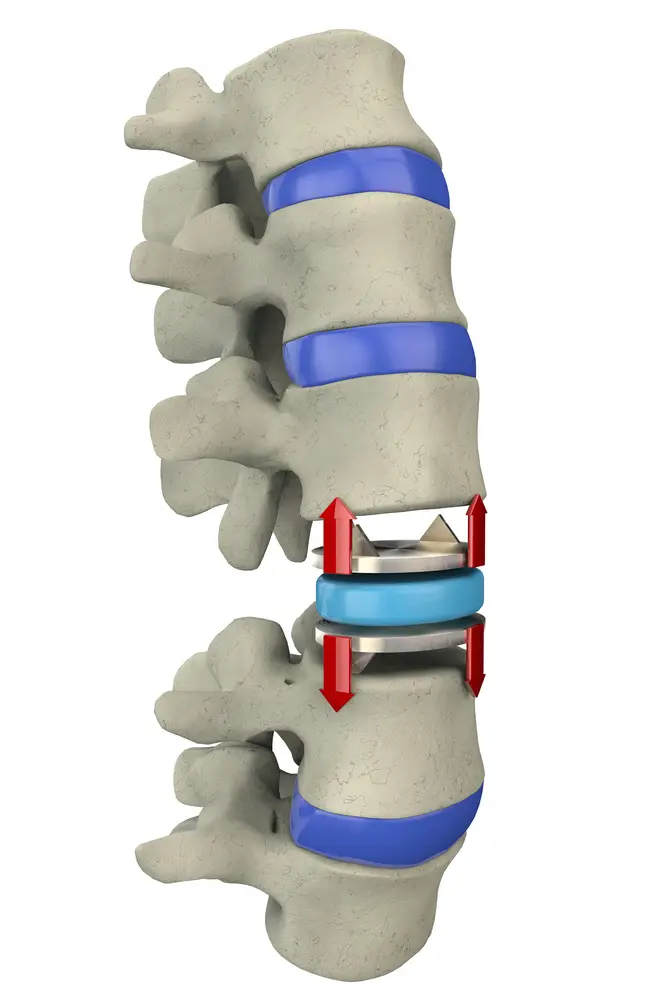With the speed of medical breakthroughs – miracles of technology, really – it is easy to forget the amazing effect these advances have on the quality of life of patients. Before the artificial disc replacement procedure was pioneered by the back specialists at Texas Back Institute 15 years ago, patients with conditions such as degenerative disc disease had no alternative except for disc fusion.
A young woman named Gara Little was such a patient. “I was extremely active in sports and cheerleading during my high school years,” Gara said. “Then, out of nowhere, I was unable to compete and was in a great deal of back pain. I was a college freshman at the time.”
“My father had a back condition and his specialist was Dr. Richard Guyer at Texas Back Institute,” she said. “My dad encouraged me to see Dr. Guyer and what turned into a 5-year medical odyssey began.”
Something BIG was on the Way
“When I first met Gara she was only 22 years old and I knew her condition was serious and deteriorating,” noted Dr. Guyer. “At that time, the artificial disc replacement procedure was not approved by the FDA and patients with her condition could try to live with the pain or choose the fusion procedure, which would limit their mobility,” he said.
“He told me to ‘hang in there’ because something BIG was on the way,” said Gara eight years after her procedure. “I trusted him and still do because he forever changed my life!”
“I did yoga, Pilates and physical therapy, but nothing really helped my back pain,” she said. “I kept hoping for whatever it was that was going to heal me. Finally, in 2007, Dr. Guyer called and said he and his colleagues had begun to successfully treat conditions like mine with an artificial disc replacement,” she said. “I was so excited!”
Was She Concerned About a New Procedure?
“You know, in retrospect, I probably should have been more anxious about what would happen with this brand new procedure where a man-made device was inserted in my spine,” she laughed. “However, I was in so much pain, I wasn’t worried about the procedure. I was just concerned about the procedure not working on me.”
“I had been seeing Dr. Guyer for years and I trusted him completely,” “Actually, I was excited about the operation and the results were amazing!”
Her World Changed Completely
Gara Little’s life has improved immeasurably since she was a freshman in college with chronic back pain. For starters, she’s a wife and mother of two beautiful children.
“My son Pierce is 4-years old and my little girl, Lillie, is 1,” she said. “I carried them both through the pregnancy and there were no back problems, whatsoever. This is unusual for even a completely healthy woman’s back.”
“Now, I can lift Lillie and play baseball with Pierce in the backyard and I have no back pain,” she said. “I also participate in dance aerobics with no pain. This procedure changed my life.”
Dr. Guyer has known Gara for many years and is clearly moved by his experience in helping her.
“She was the perfect candidate for an artificial disc replacement,” he notes. “She was young and wanted to be active. Because of this desire, she worked tirelessly on her rehab and, even when there were set-backs, she never gave up.”
“She has a great personality and an amazingly sweet gal,” he said. “She calls me ‘Guyer’ and that always makes me laugh.”
“Gara Little exemplifies what the artificial disc replacement procedure is all about. We corrected her degenerative disc by replacing it with a state-of-the-art device and she got back to living a normal life again,” he said.
The back specialists at Texas Back Institute were the first practitioners to use the artificial disc replacement 15 years ago. Since then, thousands of patients experiencing chronic back pain from injured discs have “gotten back to living again.”
If you believe you might be a candidate for an artificial disc replacement, contact us. We’ll conduct a thorough examination and help you determine if this procedure is appropriate for your condition.


